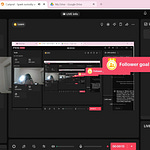🌟 Understanding the Power of Media: Key Points and Discussion 🌟
Today’s presentation focuses on how media influences public perception and shapes narratives. Here’s a quick breakdown and key questions to think about:
Main Points
Overt Power: Direct and easily identifiable messages, like political speeches or ads.
Covert Power: Subtle framing and word choices that influence how we interpret information without being obvious.
Media Framing Examples:
Trump’s Executive Order: Conservative outlets framed it as necessary for security, while progressive outlets viewed it as an infringement on rights.
Beyoncé’s Grammy Wins: Media reactions explored issues of race, genre bias, and representation in the music industry.
Hilary Janks’ Four Orientations
Domination: Who controls access to information and how that control maintains power.
Access: The importance of providing diverse groups with access to information.
Diversity: The inclusion of multiple voices and perspectives to challenge dominant narratives.
Design: How media and texts are constructed to reflect or challenge power dynamics.
Key Exercises and Discussions
Media Bias (Trump’s Order): Read This Article
Compare headlines from different outlets.
Discussion: What biases do you notice? How do word choices shape understanding?
Power in Pop Culture (Beyoncé’s Wins): Watch This Video
Discussion: How do media narratives reflect bias in the entertainment industry?
Framing Techniques:
Language matters! Discuss how selective emphasis and positive/negative connotations shape narratives.
Social Media Amplification:
Analyze tweets and how algorithms prioritize certain voices.
Discussion: How does this influence what we see and believe?
Final Thought:
Being aware of media framing helps us think critically and engage more thoughtfully with the information we consume. Let’s challenge biased narratives and encourage diverse perspectives!
#CriticalLiteracy #MediaBias #MediaPower #SubstackCommunity #JoinTheConversation












Share this post